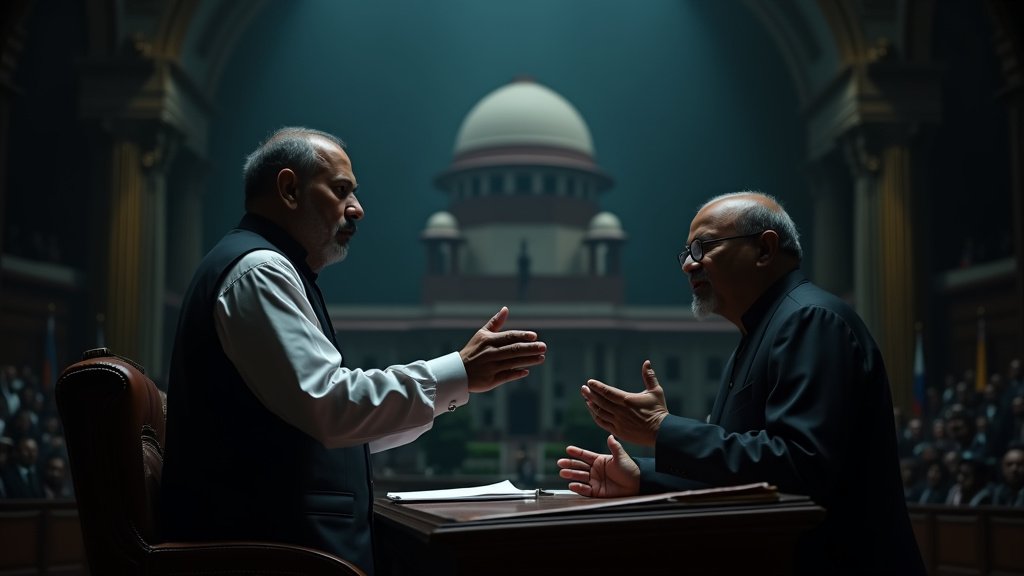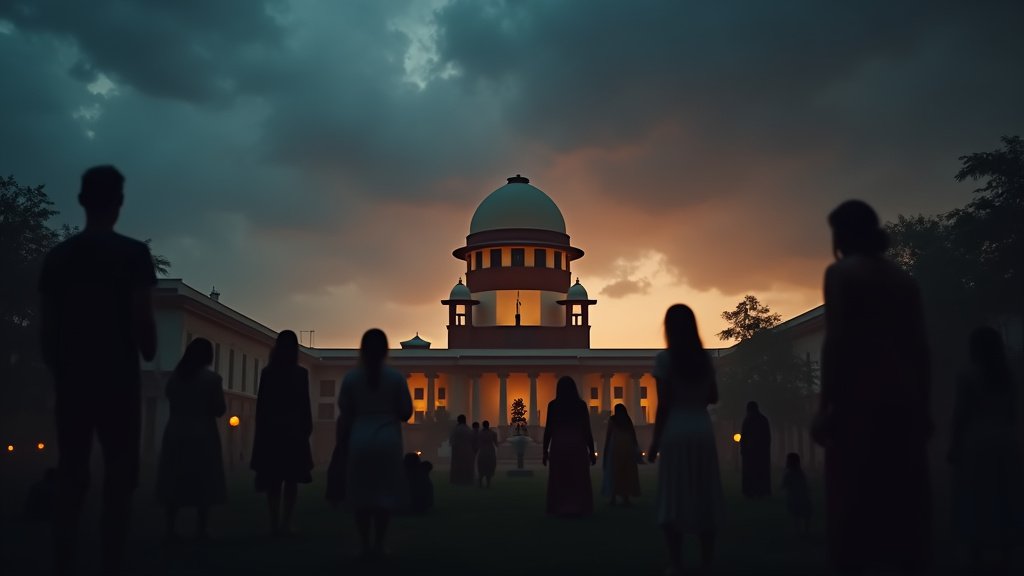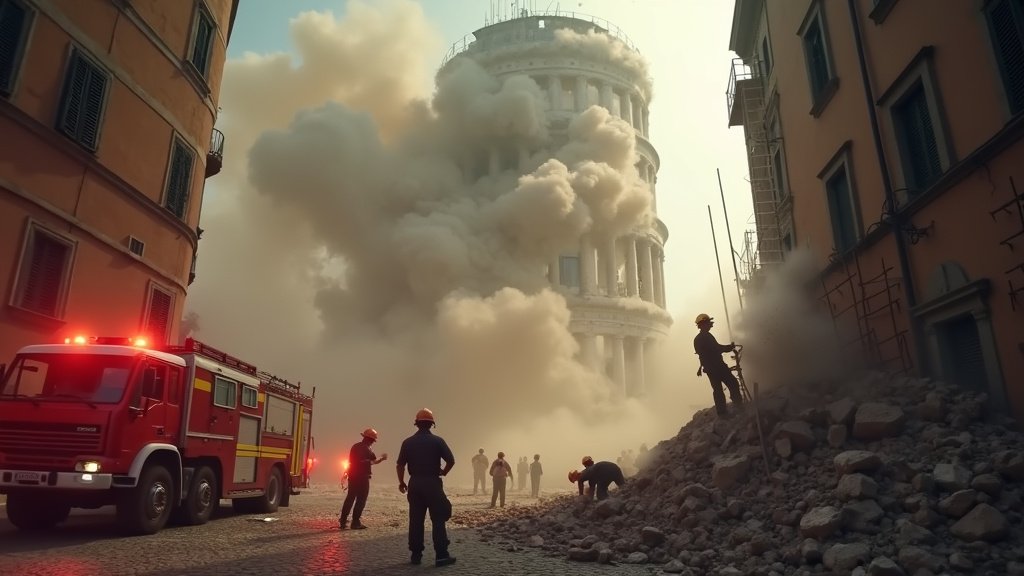In a day marked by significant political, judicial, and international developments, India’s news landscape is dominated by a heated exchange between political heavyweights, a crucial court ruling on transparency, and a tragic incident abroad.
Political Firestorm Erupts Over Proposed ‘Jailed Ministers’ Law
The political arena was set ablaze as former Delhi Chief Minister Arvind Kejriwal directly challenged Union Home Minister Amit Shah regarding the proposed Constitution (One Hundred and Thirtieth Amendment) Bill, 2025. The bill aims to disqualify individuals holding constitutional office, including the Prime Minister and Chief Ministers, if they are arrested and detained for 30 consecutive days for offenses carrying a minimum sentence of five years imprisonment. Amit Shah defended the legislation, asserting its necessity to curb political corruption and prevent governance from behind bars, emphasizing that Prime Minister Narendra Modi himself has included the Prime Minister’s post within the bill’s ambit. He criticized the opposition’s protests as an attempt to protect corrupt individuals.
Kejriwal, however, questioned the moral standing of such legislation when the ruling party inducts individuals accused of serious crimes. He posed pointed questions on social media, asking how many years in jail such leaders should face for making false allegations, and whether prime ministers or ministers who bring such tainted individuals into their parties and elevate them to high positions should also resign. This debate underscores the deep political divisions surrounding accountability and the criminalization of politics in India, with opposition parties voicing concerns that such a law could be weaponized against non-BJP governments.
Delhi High Court Upholds Privacy in PM Modi’s Degree Disclosure Case
In a significant judicial development now trending across the nation, the Delhi High Court quashed a Central Information Commission (CIC) order that had directed Delhi University to disclose details of Prime Minister Narendra Modi’s Bachelor of Arts degree from the 1978 batch. Justice Sachin Datta ruled that educational qualifications constitute personal information, protected under the Right to Information (RTI) Act’s provisions for privacy and fiduciary trust, and are not subject to mandatory public disclosure unless an overriding public interest can be demonstrated. The court distinguished between public interest and public curiosity, stating that mere inquisitiveness does not warrant overriding statutory privacy protections.
The case originated from an RTI application filed in 2016, seeking access to the university’s records from that year. The CIC’s 2016 order had allowed inspection of records for all students who passed the BA program in 1978. Delhi University had challenged this, arguing that student information is held in a fiduciary capacity. The High Court’s decision prioritizes privacy rights, setting a precedent for how personal data of public figures is handled under the RTI framework. The opposition has reacted critically, terming the ruling “incomprehensible” and suggesting a dilution of transparency laws.
Gaza Hospital Strike Claims Lives of Journalists Amidst Ongoing Conflict
Internationally, the news that is drawing widespread condemnation is the devastating strike on Nasser hospital in southern Gaza on Monday, August 25, 2025. The attack, reportedly a double-tap missile strike, resulted in the deaths of at least 20 people, including five journalists. Among the victims were Hussam al-Masri, a Reuters contractor; Mariam Abu Dagga, an Associated Press freelancer; Al Jazeera photographer Mohammed Salam; photojournalist Moaz Abu Taha; and Ahmad Abu Aziz from Quds Feed. Another Reuters journalist was reportedly wounded.
Media organizations and officials in Gaza have decried the incident as a “horrific crime” and a deliberate attempt to silence reporting from the conflict zone. While Israel’s military has denied targeting journalists, stating it regrets any harm to uninvolved individuals, the Committee to Protect Journalists (CPJ) has condemned the strikes. This tragic event underscores the extreme dangers faced by media personnel covering the protracted conflict and adds to the mounting toll of journalists killed in the region.
Mehbooba Mufti Leads Protest in Srinagar Demanding Prisoner Repatriation
In Jammu and Kashmir, former Chief Minister Mehbooba Mufti led a protest march in Srinagar, advocating for the return of Kashmiri prisoners from jails located outside the Union Territory. While specific details of the protest on August 25th are emerging, Mufti has consistently called for the release and repatriation of Kashmiri detainees, particularly those not facing severe charges. Earlier this year, she had appealed for prisoners to be shifted to J&K and for those not facing serious accusations to be released, highlighting the financial and logistical difficulties faced by families of the detained.
This protest is part of a broader political narrative in the region concerning the status of detainees and the broader political processes. The demand for bringing prisoners back to their home region reflects ongoing efforts to address issues surrounding detention and justice within Jammu and Kashmir.
These converging events highlight a day of significant national and international focus, with critical questions being raised about governance, privacy, and human safety. The trending discussions today revolve around the core principles of democracy, accountability, and the protection of fundamental rights amidst challenging circumstances. As the day unfolds, further details and reactions are expected to emerge.





